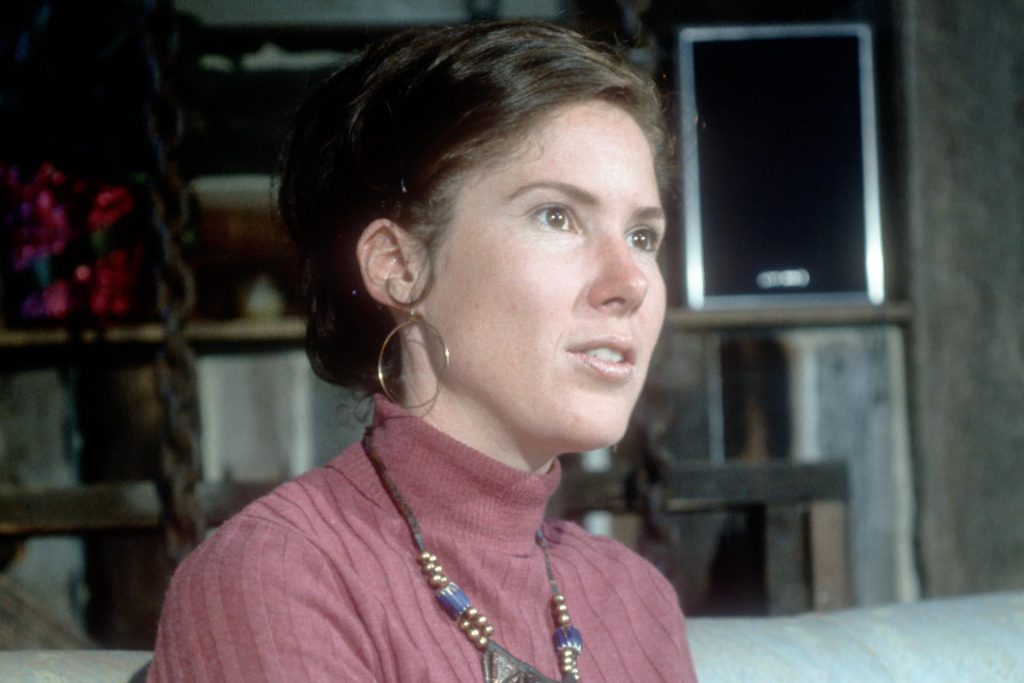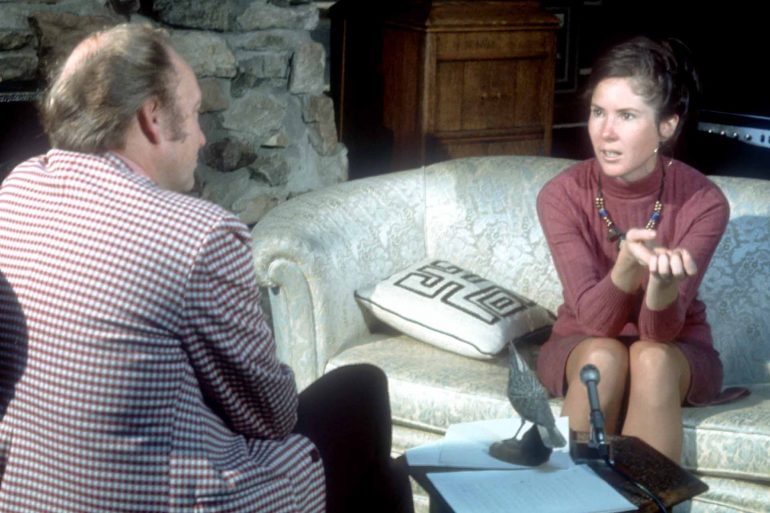From the Editor: The women’s rights movement made significant strides in the 1970s and took a prominent role in society. Dorothy Bradley was elected to the Montana House of Representatives from Gallatin County in 1970, at a time when politics was exclusively a man’s realm. In this excerpt from an essay from 1971, she recounts her time serving as the only woman in the Montana House.
As my father’s eye caught the title of this essay, he looked disapprovingly at me. “How did you know?” he queried. I knew because I was the deviant. There was only one woman in the 1971 Montana House of Representatives. This particular fact led to some fascinating moments, I must admit. Even during the campaign, long before the House went into session, I became aware of the problems that a female in politics must face. And to add to the problem, I was 23 years old.
My first problem arose because my political intuition had not begun to shape up. When I filed to run (an overnight and slightly whimsical decision, I am afraid), the newspaper carried my filing statement with an unfortunate picture in which the long mop of hair hanging down my back subtracted at least 10 years from my already young age. So, what with my hair and pair of psychedelic bell bottoms, I started out with a very skeptical constituency. But determined not to get discouraged, I immediately made a visit to one woman who had reportedly referred to me as “a GD hippie out to change the world overnight.” We had a long, polite conversation. The woman warmed up considerably after I had listened to an hour of anti-communist propaganda and we parted on friendly terms. I discovered some time later that she was not even registered to vote. Evidently she was not eager to change the world overnight or at all, for that matter.
As a female candidate, I never became quite bold enough to be the true hand-shaking, smiling politician with bunches of strangers. Once, when I wandered downtown, I ran into a serious old gentleman who questioned me on “what interesting thing I was going to do up there?” Following the advice of my many helpers, I responded with the confident question, “What interesting things would you like me to do up there?” He scratched his head and a small smile crept across his face. “Well,” he said, “how about an affair with the governor?”
After the excitement of the election had worn off, the hard work began. Life was nothing but meetings and mail. (I vowed to never again complain about lack of mail.) But the contents of the mail forecast some of the interesting events which were yet to come from being a female politician. I received such warm, personal letters. Some even had the familiar greeting, “Dear Dorothy.” But inevitably a paragraph would appear in the middle of the letter saying, as one letter put it, “I trust, Sir…”
I also received many letters with complementary services for my Helena visit. One such letter offered me a free shave and haircut, and an opportunity to try on the latest in toupee styles guaranteed to bring back my youth. Just what I needed.
Eventually, the time came for me to drive to Helena. I think the terror subsided and the frustration began with a speeding ticket in East Helena. Equally as frightening as my first week in Helena was the day for the introduction of my litter bill. The bill was short and simple, but I trembled as I saw the first person rise to question me. Then, in the lingo peculiar only to politicians in their place of office, he asked, “Will the lady from Gallatin yield?” There were a few moments of prolonged silence, followed by loud guffawing in the House. Nothing else could have relaxed me more completely, but I realized at the same time that the language of the House was not adapted for women.
There were too many jokes to enumerate. For one, I was surely the last of all the freshmen to receive a message requesting that I meet W.F. Sanders, who was waiting for me on the rotunda. After 15 minutes of searching the empty area, I discovered a tall, bronze statue with the engraving, “W.F. Sanders.”

Many events I remember with wistfulness. One forgets the exhaustion, embarrassment, frustration and helplessness. I had even forgotten the letters I received on the abortion issue, until I read back over them this past week. They ranged from one person who informed me that God was preparing an extra hot place for me in hell, to another, who in the bluntest of terms, wished an unwanted pregnancy on me for having made light of such a serious social matter.
I seriously believe that women should make a greater effort to have their sex more numerously represented. Although I was spoiled with attention, I would not want to be the one deviant again. The situation had some positive factors. I was given special consideration leading to such privileges as serving on two committees of my choice. I had publicity, which although overdone, gave me an advantage in my campaign and gave my issues more than their share of attention. A woman in politics is relatively rare and any element of uniqueness is a great asset in a campaign.
But the need for more women in the legislative process is a serious one because of the number of issues which lie in the realm of women. These issues are dealt with by the Legislature at a time when it is only outdated tradition that has made men the decision-makers. The abortion issue provides the best illustration. Of course, women are divided on this issue. But the fact remains that the reform bill was killed by 95 male votes against it and only four in favor; the one female vote in the House was for it. If women are dissatisfied they must simply show more faces for the final vote.
More women in politics will eventually lead to the day when they are accepted as part of the normal group, instead of being treated as an oddity. There were, of course, many moments when I enjoyed being the interesting addition in the back row, but when it came down to the battle over an issue about which I am deeply concerned, it was not so pleasant. Perhaps this was the area in which my sympathies lay with women’s lib. I would have been happier had my issues been argued only on their own merits, since that would mean I had been given the best of legislative privileges – that of being accepted.
But I would be the last to claim that my legislative experience was anything less than amazing, educational, exciting and even fun. I cannot say (like most ambiguous politicians) if I will run again. But deep inside I would like to try. I have a great image fixed in my mind, of the day when I finally have courage to take the chair for the afternoon. I would stand up there and whack that gavel. And when the moment came, I would look at the voting machine, wait the perfect measured minute and then ask, “Would anyone like to change…her…vote?”
Dorothy Bradley was elected to eight terms in the Montana House of Representatives, serving from 1971 to 1978 and 1985 to 1992. She ran for Congress in 1978 and governor of Montana in 1992. She has since retired from public service and lives in Clyde Park.


